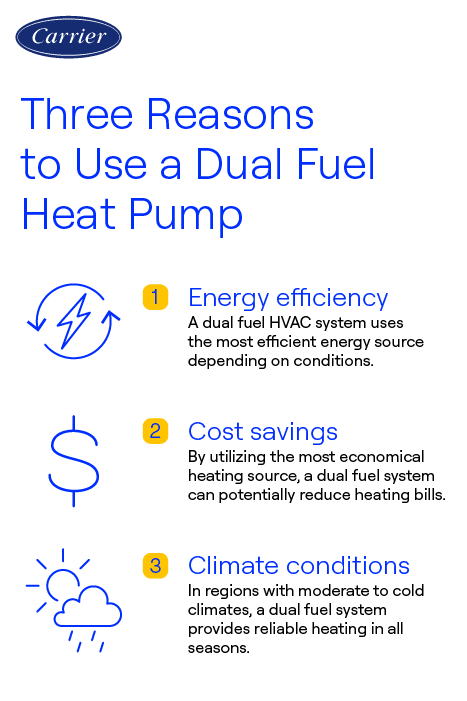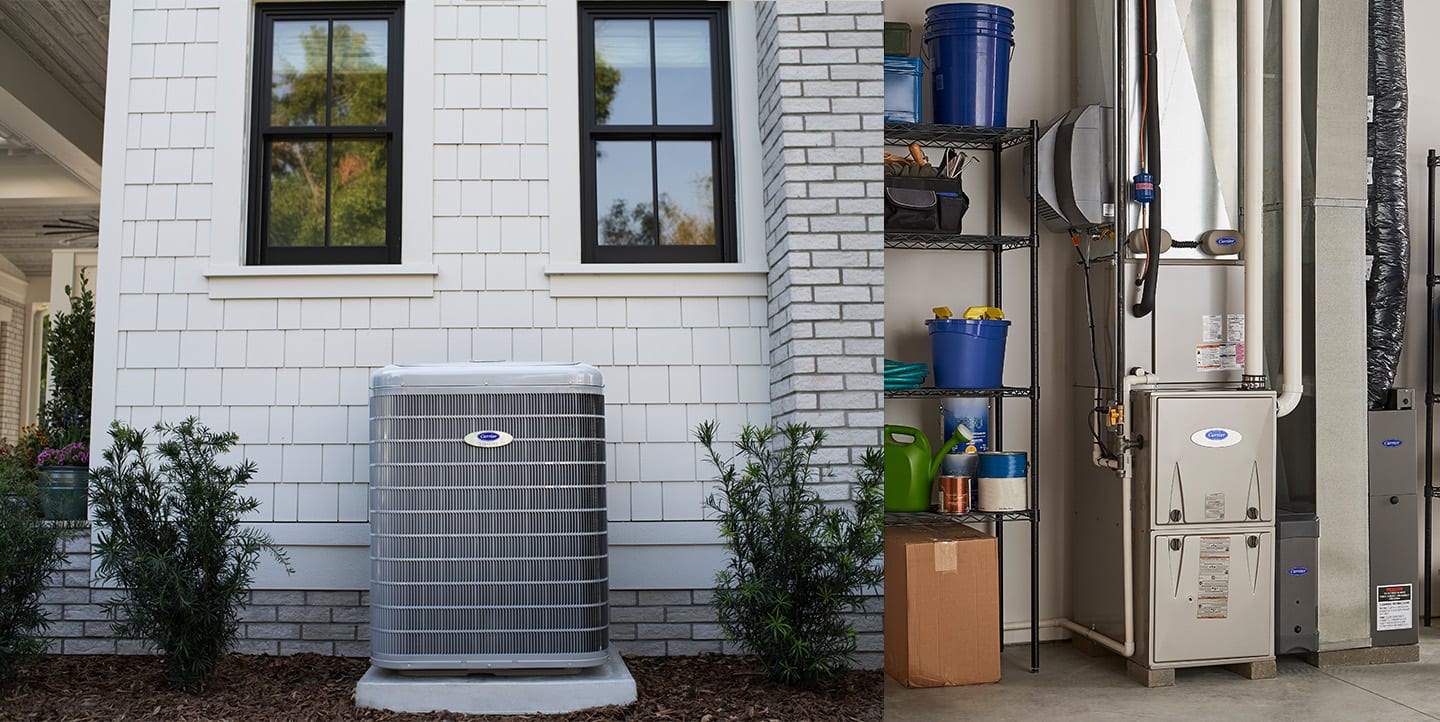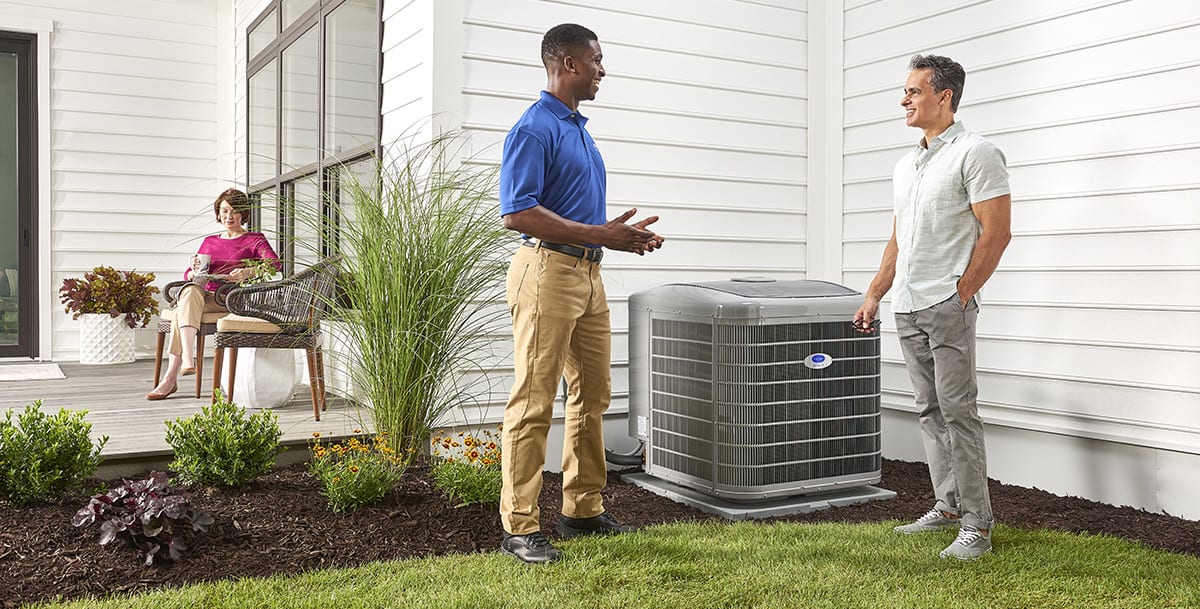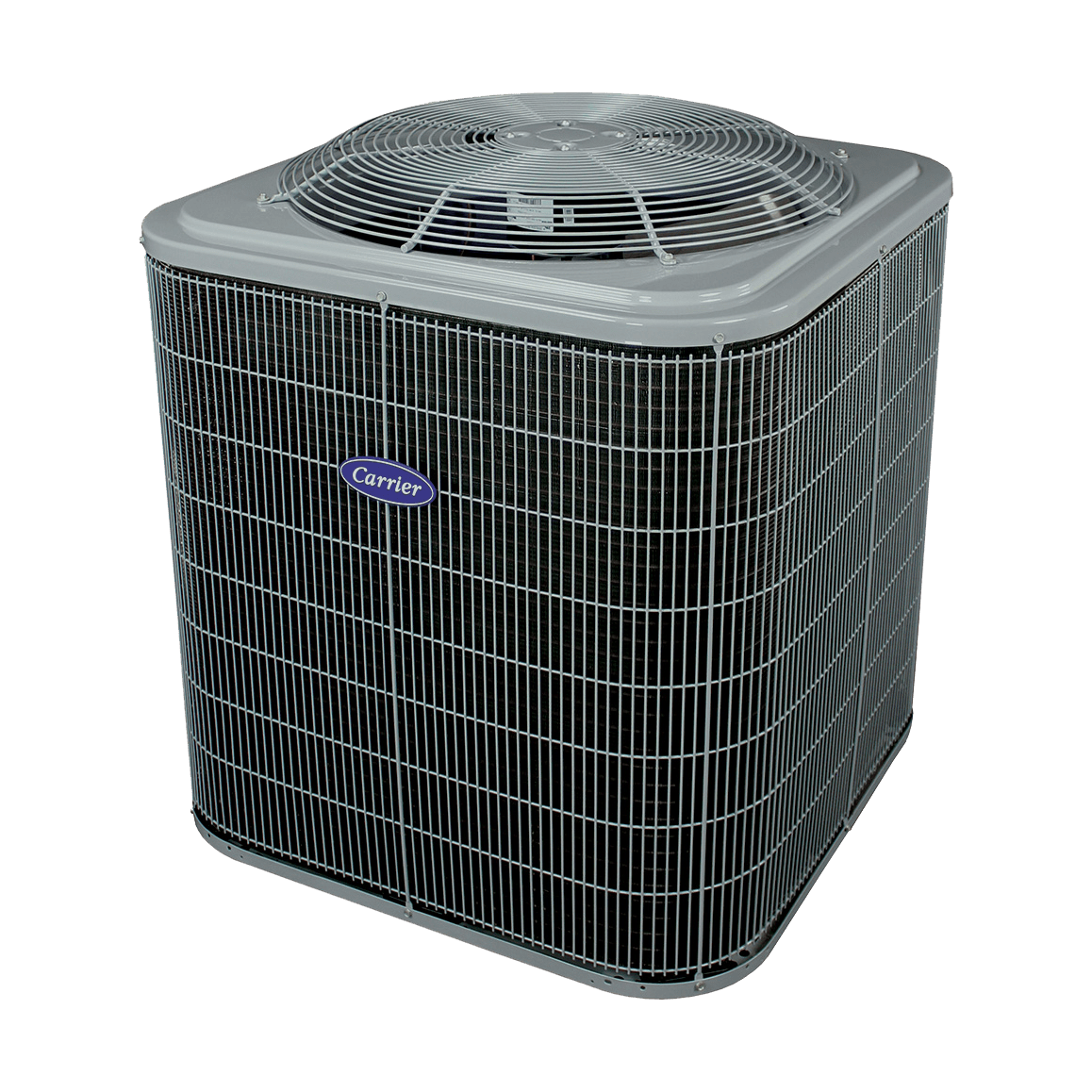What is a Dual Fuel Heat Pump System?
How Does a Dual Fuel Heating System Work?
A dual fuel heating system combines an electric heat pump and a gas furnace to provide efficient heating and cooling year-round. The system includes two primary components: the heat pump and the furnace. The heat pump uses electricity to transfer heat between your home and the outdoors, extracting heat from the outside air in winter to warm your home and reversing the process in summer to cool it.
When outdoor temperatures drop too low for the heat pump to efficiently extract heat, the system automatically switches to the gas furnace. The furnace generates heat using natural gas, ensuring your home remains warm even in the coldest conditions.
This collaboration between the heat pump and the furnace is managed by a system that monitors outdoor temperatures, selecting the most cost-effective and energy-efficient heating option.

Three Reasons To Use a Dual Fuel Heat Pump

A dual fuel heating system can be an excellent option for homeowners aiming to maximize energy efficiency and cost savings. However, several factors should be considered when deciding if a dual fuel heat pump is the right choice for your home.
1. Energy efficiency
Dual fuel heat pumps are known for their high energy efficiency, utilizing electricity for heating and cooling and switching to a gas furnace during extremely cold weather. This capability allows homeowners to use the most efficient energy source depending on the climate conditions, reducing energy consumption and helping lower heating and cooling utility bills.
2. Cost savings
Dual fuel heat pumps can offer long-term savings due to their energy efficiency. While the upfront installation cost may be higher compared to other systems, the savings in energy bills over time may help offset the initial investment. Additionally, some utility companies offer rebates or tax credits for installing energy-efficient systems, further reducing the overall cost of a dual fuel heat pump.
3. Climate conditions
Dual fuel heat pumps are most effective in regions with moderate to cold climates. In areas with mild winters, a traditional heat pump may suffice. However, in colder climates where temperatures frequently drop below freezing, a dual fuel heat pump ensures efficient heating even in extreme conditions.
By weighing these factors and talking to your local Carrier dealer, you can make an informed decision and choose the best heating and cooling solution for your home and lifestyle.

Installation and Maintenance of Dual Fuel Heat Systems
Professional installation is crucial for ensuring the efficiency and longevity of a dual fuel heat pump system. Proper furnace installation and heat pump installation requires correct sizing, seamless integration between the heat pump and furnace, and precise thermostat configuration to ensure smooth transitions between heating sources. A professional technician will also verify ductwork compatibility and refrigerant charge levels for optimal operation.
Regular maintenance and servicing are essential to keep your dual fuel heat system running efficiently. Change air filters every 1-3 months, inspect ductwork for leaks, and schedule annual HVAC maintenance with your local Carrier dealer for a thorough inspection.
For troubleshooting, common issues include improper fuel switching, sensor malfunctions, and uneven heating. If the system isn’t switching modes correctly, check the thermostat settings and ensure the outdoor unit is free of debris. For persistent issues, contact an HVAC professional to diagnose and resolve problems promptly. Proper installation and regular maintenance will keep your dual fuel heat pump running efficiently for years.
Choosing the Right Dual Fuel Heat Pump for Your Home
Selecting the right dual fuel heating system for your home involves considering several factors to ensure performance and energy efficiency.
- Size and capacity: A heat pump that is too small may struggle to heat or cool your home adequately, while one that is too large may cycle on and off frequently, wasting energy. Factors such as your home's square footage, insulation levels, and climate conditions can help an HVAC professional determine the correct size and heating capacity for your home.
- Energy efficiency ratings and features: Look for units with high Seasonal Energy Efficiency Ratio 2 ( SEER2 ) and Heating Seasonal Performance Factor 2 ( HSPF2 ) ratings. Higher values indicate greater efficiency. Additionally, consider features like variable-speed motors and two-stage compressors, which can enhance energy savings and comfort.

FAQs About Dual Fuel Heat Pumps
Dual Fuel HVAC Systems From Carrier
At Carrier, we offer a range of dual fuel HVAC systems designed to meet your specific needs. Your local Carrier dealer can help you navigate the different options and select the correct system for your home. With our advanced technology and commitment to energy efficiency, you can trust Carrier to provide reliable and efficient heating and cooling solutions for your home comfort needs.
Notre appareil le plus efficace et le plus évolué avec une cote SEER jusqu’à 23 pour des économies d’énergie supérieures, un fonctionnement extrêmement silencieux et un confort haut de gamme.
Cote SEER2 allant jusqu’à 18,5 pour des économies d’énergie accrues et des caractéristiques de confort améliorées. Dotée de la technologie InteliSenseMC
Cote SEER2 allant jusqu’à 16 pour des économies d’énergie modérées et des caractéristiques de confort standard.



